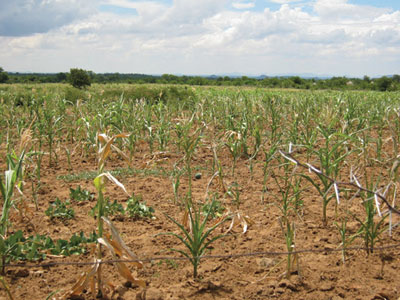
KEZI villagers are on the verge of starvation after their crops wilted due to a prolonged dry spell amid calls for the government and well-wishers to chip in with food aid to avert a potential disaster.
PRIVILEGE SHOKO OWN CORRESPONDENT
Reports from the district are that most fields were destroyed and the crop has wilted to the extent that if one lit a match stick the fields could burn.
The district last received rains last year, a situation which exacerbated the villagers’ plight, as most will not salvage anything.
The most affected villages are Mabonyane, Mayetshe, Bhalagwe, Mbuya and Gohole.
Villagers are said to be surviving on buying mealie-meal from shops, but it is the most vulnerable, particularly the elderly and orphans who do not have money, who are going hungry and only surviving through the benevolence of other villagers who give them food.
Kezi councillor for Ward 10, Alexander Phiri, yesterday confirmed the drought in the area and described the situation as a disaster.
“We are really in a very bad situation and if you can go around looking at the fields, the villagers will manage to produce only 5% from their fields,” he said.
- Chamisa under fire over US$120K donation
- Mavhunga puts DeMbare into Chibuku quarterfinals
- Pension funds bet on Cabora Bassa oilfields
- Councils defy govt fire tender directive
Keep Reading
“Even if it rains, some people will not harvest anything and this time everyone is affected.”
Phiri appealed for food aid from well-wishers and the government.
“We are appealing for food aid from those who can assist and the government because the situation is really a disaster,” he said.
Like other drought-prone districts in Matabeleland region, Kezi has been hit by poor rainfall seasons in past years. Farmers and their unions blame the cyclical uncertainties of their sector not only on a lack of up-to-date farming technology, but also on their inability to obtain seed varieties that can survive low rainfall caused by climatic shifts.
Despite erratic rainfall, farmers have continued to follow traditional planting seasons. This has increased their frustration as crops wilt from lack of rain.










